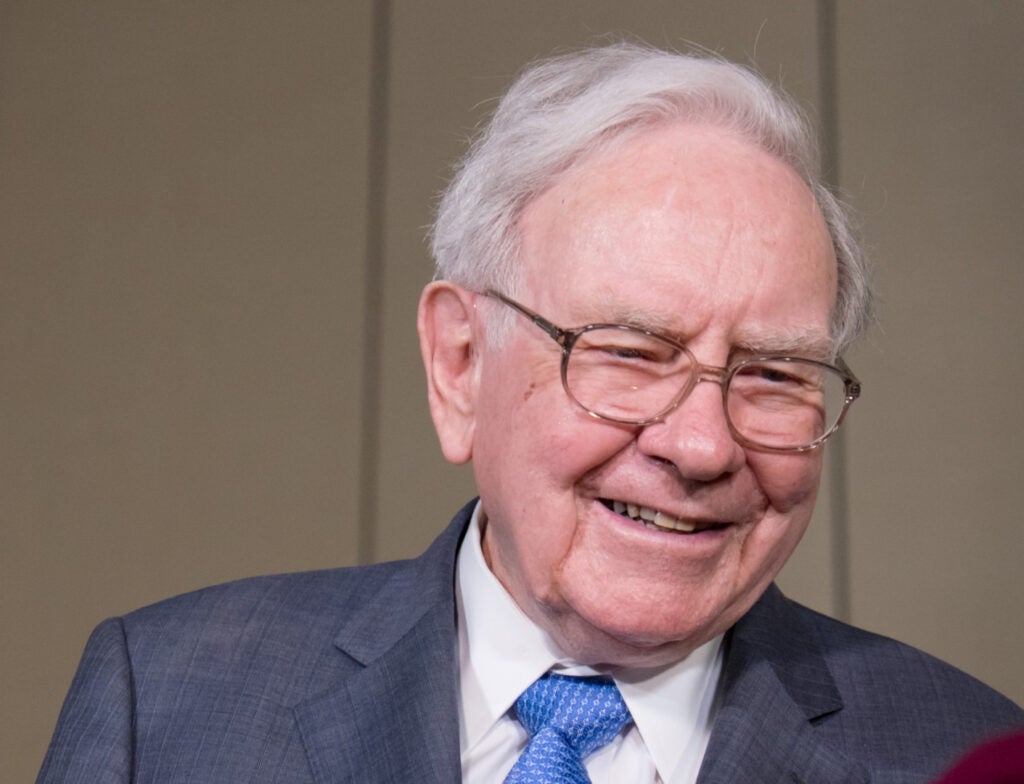
Warren Buffett may be a financial mastermind, but when it comes to self-control, even he needs a little extra motivation.
The billionaire investor, known for his sharp decision-making and long-term strategy, had one particular weakness: junk food. Despite living off a diet that would make most nutritionists cringe—McDonald’s breakfasts, Dairy Queen sundaes, and an alarming amount of Coca-Cola—Buffett feared gaining too much weight. And in true Buffett fashion, he didn’t just set a goal. He made a bet.
In his official 2008 biography “The Snowball: Warren Buffett and the Business of Life” by Alice Schroeder, Buffett understood his own tendencies all too well. To keep himself accountable, Buffett handed his children unsigned checks for $10,000 each, promising to sign them if he exceeded a certain weight.
Don’t Miss:
The plan seemed foolproof—until his kids saw an opportunity. Instead of cheering him on, they went full Wall Street and tried to game the system. Donuts, pizza and fried food mysteriously appeared around the house, conveniently placed within Buffett’s reach. His children, eager to cash in on their father’s notorious frugality, became his biggest saboteurs.
For someone who once told Fortune, “I eat like a 6-year-old,” this was no easy challenge. His daily routine included five 12-ounce Coca-Colas—”If I eat 2,700 calories a day, a quarter of that is Coca-Cola. I do it every day,” he said.
Trending: Many are surprised by Mark Cuban’s advice for lotto winners: Cash or annuity?
His mornings started with a McDonald’s drive-thru stop, where he picked from one of three breakfast options based on how the market was performing. If Berkshire Hathaway BRK BRK.B)) was up, he’d splurge on a bacon, egg, and cheese biscuit. If it was down, two sausage patties would do. Lunch often meant a Dairy Queen chili cheese dog and an ice cream sundae topped with cherry syrup and chopped nuts. And then there were the snacks: Utz potato sticks, See’s Candies, and a salt intake so excessive that former Wells Fargo WFC CEO John Stumpf once compared it to a “snowstorm.”
Despite this, Buffett had a trick up his sleeve. His $10,000 bet wasn’t just a quirky wager—it was a classic example of a commitment device, a concept in behavioral economics where people create consequences to hold themselves accountable for their actions. A 2009 Psychology Today article referencing the same weight-bet anecdote highlighted Buffett as a textbook example of a “sophisticate.” Unlike “naifs,” who think they’ll start their diet tomorrow but never do, or “rational” thinkers, who always make optimal choices, a “sophisticate” understands their own irrationality and sets up systems to counteract it. Buffett knew that, left unchecked, he’d happily eat himself into a sugar coma. So, he made sure that failing his weight goal came at a real cost—$10,000 to his kids.
See Also: Can you guess how many Americans successfully retire with $1,000,000 saved? The percentage may shock you.
Of course, his children didn’t make it easy. Instead of letting Buffett quietly stick to his goal, they turned it into an opportunity for financial gain. Junk food started appearing around the house, placed strategically to tempt him. But even against their best efforts, Buffett prevailed. The checks went unsigned, proving that even the Oracle of Omaha can outmaneuver his own cravings.
Buffett’s bet was a perfect example of how he applies his investing principles to everyday life. Just like in the stock market, where he stays disciplined and avoids emotional decisions, he managed to outwit his biggest opponents—his own kids and his love for junk food. Turns out, nothing tests willpower quite like a financial incentive, especially when there’s $10,000 at stake. If every failed diet came with that kind of price tag, there’d probably be a lot fewer broken New Year’s resolutions.
Read Next:
Image Via Shutterstock
Market News and Data brought to you by Benzinga APIs
© 2025 Benzinga.com. Benzinga does not provide investment advice. All rights reserved.

